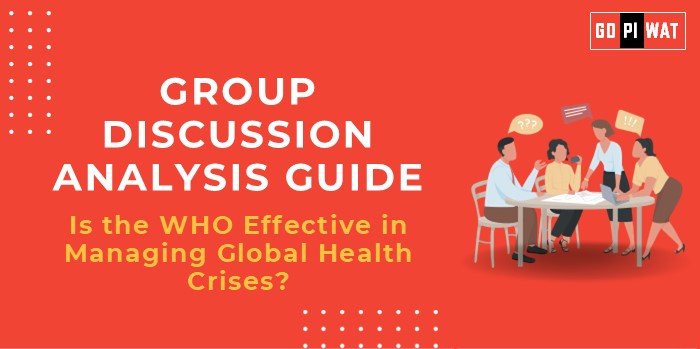📋 Is the WHO Effective in Managing Global Health Crises?
🌐 Introduction to WHO Effectiveness
Opening Context: The WHO has been the central global health agency since 1948, tasked with addressing pandemics, health emergencies, and setting international health standards. Its effectiveness has come under scrutiny during recent crises, including the COVID-19 pandemic.
Topic Background: Originating as a specialized UN agency, WHO’s primary objectives include eradicating communicable diseases and coordinating global responses to health threats. Its handling of outbreaks like SARS, Ebola, and COVID-19 provides rich grounds for analysis.
📊 Quick Facts and Key Statistics
- 💉 COVID-19 Vaccinations: Coordinated 15 billion vaccine doses globally (WHO, 2023).
- 💰 Funding Gap: Faces a $1.2 billion budget shortfall annually (UNDP Report, 2023).
- 🌍 Emergency Responses: Managed 70+ global health crises over the last decade.
- 📋 International Influence: Works with 194 member states under a complex governance structure.
👥 Stakeholders and Their Roles
- 🏥 WHO: Acts as a coordinating body, issuing guidelines and mobilizing resources.
- 🌐 Governments: Implement WHO policies and fund its programs.
- 💼 Private Sector: Partners in vaccine production and health technology innovations.
- 🤝 Civil Society: Engages in advocacy and grassroots health campaigns.
🏆 Achievements and ⚠️ Challenges
Achievements
- ✅ Eradication of Smallpox: Achieved in 1980 through global campaigns.
- 🛡️ Global Vaccination Campaigns: Immunized over 90% of children against polio.
- 💉 COVID-19 Coordination: Distributed vaccines to over 100 low-income countries via COVAX.
Challenges
- 📉 Funding Constraints: WHO’s reliance on voluntary contributions impacts operational independence.
- ⏳ Bureaucratic Delays: Criticism for slow responses, as seen in early COVID-19 containment.
- ⚖️ Global Disparities: Limited success in reducing inequities between high- and low-income nations.
🌏 Global Comparisons
- 🇸🇬 Success: Singapore’s quick COVID-19 containment highlights effective crisis management.
- 🌍 Challenges: Africa’s struggle with equitable vaccine distribution reflects persistent health inequities.
📖 Case Studies
“The WHO’s response to the Ebola outbreak (2014-2016) revealed mixed outcomes due to a delayed initial response but eventual containment efforts.”
💬 Structured Arguments for Discussion
- Supporting Stance: “WHO has significantly improved global health outcomes, exemplified by the eradication of smallpox and polio reduction.”
- Opposing Stance: “WHO’s inefficiency and political influence have hindered timely health crisis responses, as seen during COVID-19.”
- Balanced Perspective: “While the WHO has achieved landmark health milestones, its structural and funding issues limit its crisis response effectiveness.”
🛠️ Effective Discussion Approaches
Opening Approaches
- 📜 Highlight Achievements: “The WHO eradicated smallpox, a feat no other organization could replicate globally.”
- 🔍 Use Case Study Contrast: “The delayed Ebola response contrasts with Singapore’s efficient handling of COVID-19.”
Counter-Argument Handling
- 💡 “Acknowledge delays but cite long-term achievements like vaccination campaigns.”
📌 Strategic Analysis of Strengths and Weaknesses
Strengths
- 🌐 Global reach and influence in public health initiatives.
- 📋 Expertise in managing large-scale vaccination campaigns.
Weaknesses
- 📉 Dependence on voluntary funding.
- ⏳ Bureaucratic hurdles slowing emergency responses.
Opportunities
- 📊 Leveraging AI for outbreak prediction and management.
- 🤝 Expanding public-private partnerships to increase funding and innovation.
Threats
- ⚠️ Political interference undermining credibility and independence.
- ⚖️ Rising global health inequities exacerbating disparities.
🎓 Connecting with B-School Applications
- Real-World Applications:
- 📚 Examining WHO’s role in healthcare policy for global operations courses.
- 🌐 Exploring the impact of geopolitical decisions on international business and supply chains.
- Sample Interview Questions:
- 🤔 “What lessons can businesses learn from WHO’s crisis management strategies?”
- 💡 “How can WHO strengthen its financial independence?”
- Insights for B-School Students:
- 📈 Understanding how global organizations navigate funding and operational challenges.
- 💻 Exploring the integration of technology in public health systems.
- 🌍 Recognizing the impact of health policy on global economic stability.


